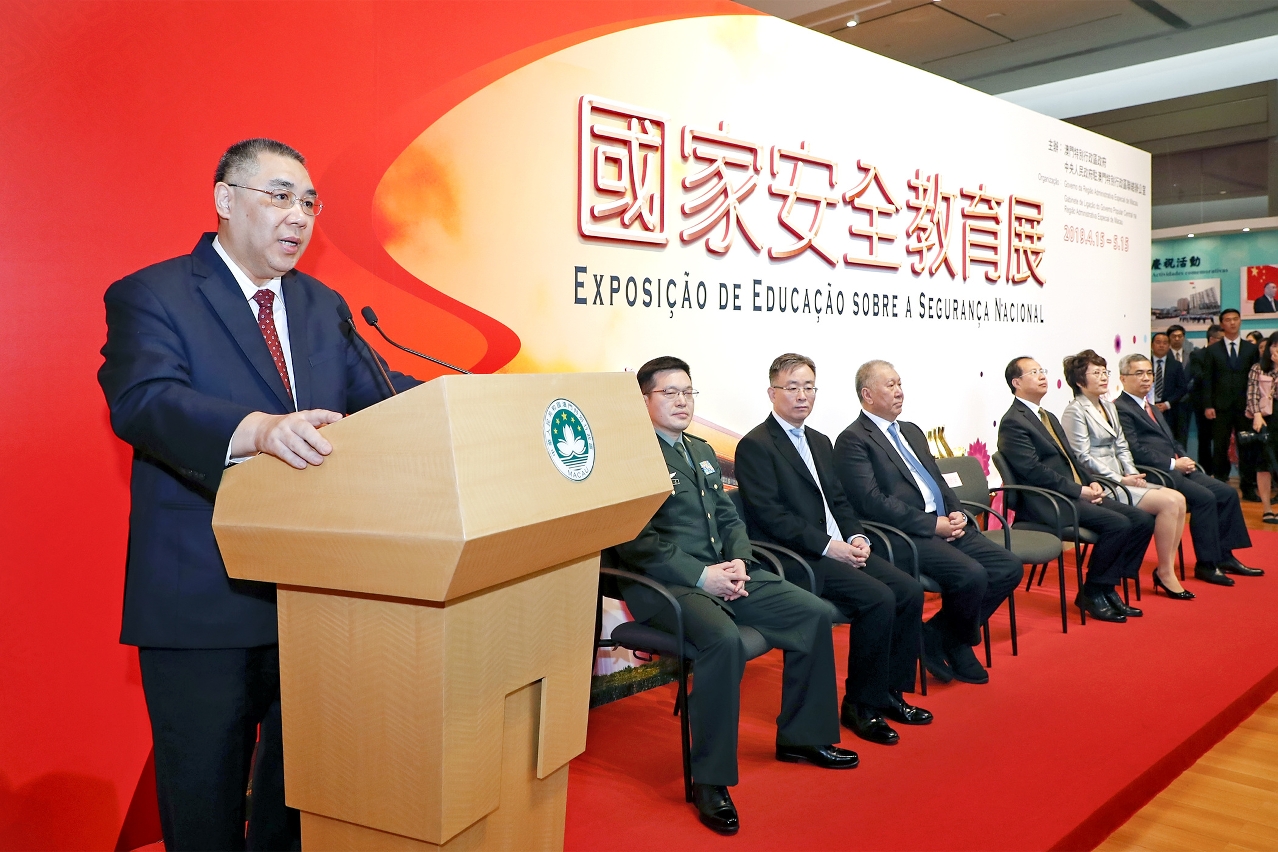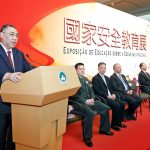 The Chief Executive, Mr Chui Sai On, speaks at the opening of this year’s edition of the National Security Education Exhibition.
The Chief Executive, Mr Chui Sai On, speaks at the opening of this year’s edition of the National Security Education Exhibition.
The Chief Executive, Mr Chui Sai On, today called on the community to join hands with the Government in fostering Macao’s contribution to maintaining national security.
Speaking at the opening of this year’s edition of the National Security Education Exhibition, Mr Chui stated the Government had been staunchly assisting in safeguarding national security and regional stability, in order to maintain the well-being of Macao people.
The National Security Education Exhibition is co-organised by the Macao Special Administrative Region (SAR) Government and the Liaison Office of the Central People's Government in the Macao SAR, and marks what is designated today as the country’s fourth National Security Education Day.
In his address, the Chief Executive called on the community to make further effort to discharge its duties and obligations in safeguarding national security and be more vigilant for challenges in times of peace. This was in the context of the People’s Republic of China and the Macao SAR ushering a new era marking later this year the 70th and 20th anniversary of their respective foundation.
The obligation to recognise the concept of “one country” on national security issues, was not at odds with the “two systems” principle, Mr Chui added.
Mr Chui reviewed in his speech the Government’s efforts in optimising local systems, work coordination mechanisms and legal frameworks in relation to national security. He also reviewed the impact of the 2018 edition of the National Security Education Exhibition.
The Director of the Liaison Office of the Central People’s Government in the Macao SAR, Mr Fu Ziying, also gave a speech at the opening of the latest National Security Education Exhibition. He said the event was designed to remind the public not to forget lessons from history and to keep relevant missions – those of maintaining national security and social stability – firmly in mind.
Mr Fu mentioned the Macao SAR Government’s efforts – including local legislation and the setting up of a relevant committee – in safeguarding national security had set an example in the implementation of the “One country, two systems” principle.
Deputy Director of the Hong Kong and Macao Affairs Office of the State Council, Mr Song Zhe, also gave an address at the opening ceremony.
He affirmed the determination of the Macao SAR Government and the Macao community to safeguard the sovereignty of the country, the nation’s security and the country’s development interests.
Mr Song added that only when the country’s security was guaranteed, could Macao’s security and prosperity be maintained. This would also ensure the steady implementation of the “One country, two systems” in Macao.
Approximately 150 guests attended the opening ceremony and toured the exhibition.
The National Security Education Exhibition aims to promote the public’s understanding of national security and its importance in relation to regional safety and the safety of each individual.
Four main themes of the exhibition are: “The road to national rejuvenation”; “Staying alert to the challenges ahead”; “Safety and development”; and “Our responsibilities”. The exhibits are mainly photographs and models of real objects, accompanied by approximately 20 video clips.
The exhibition is open to the public from 10am to 9pm, until 15 May inclusive, at the Handover Gifts Museum of Macao. Booking for group visits can be made via a dedicated website (https://eesn.gov.mo). Interested parties may also call (+853) 8800 6262 during office hours in order to make enquiries.
Exhibition materials are also available online at the dedicated website (https://eesn.gov.mo).


